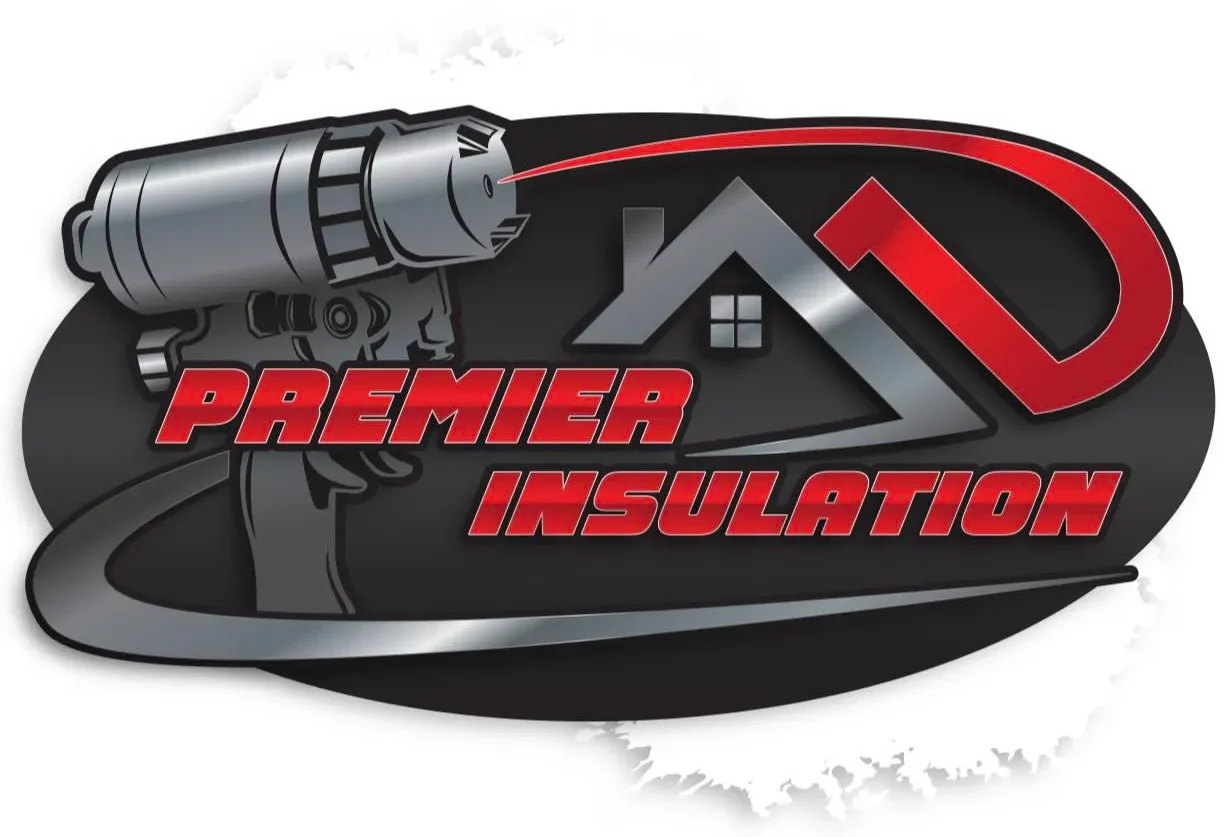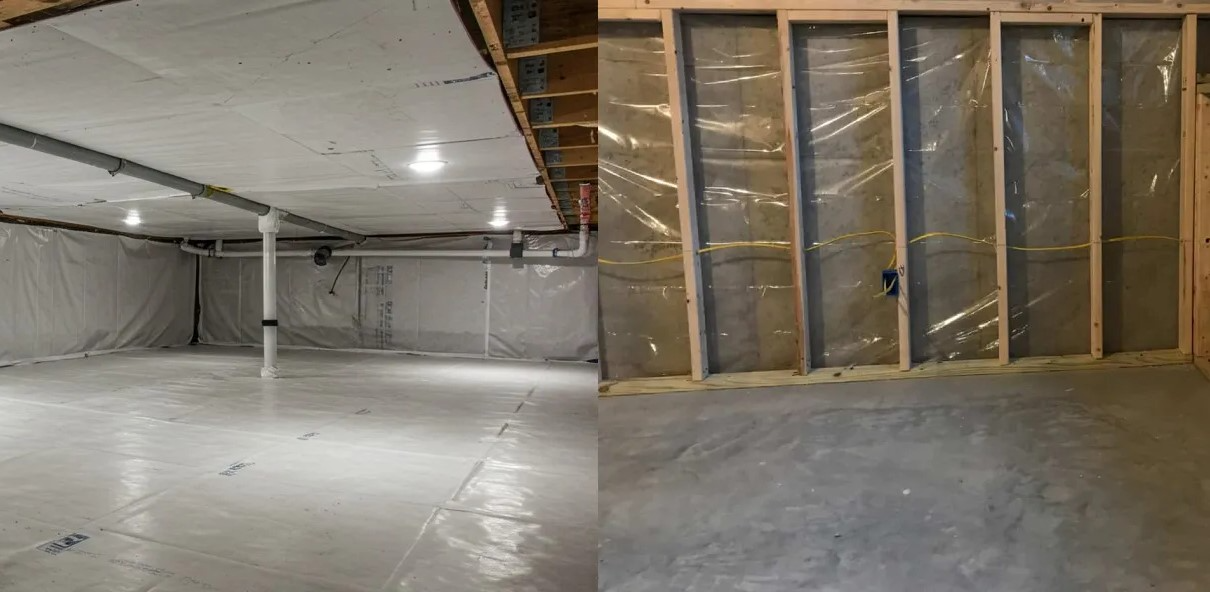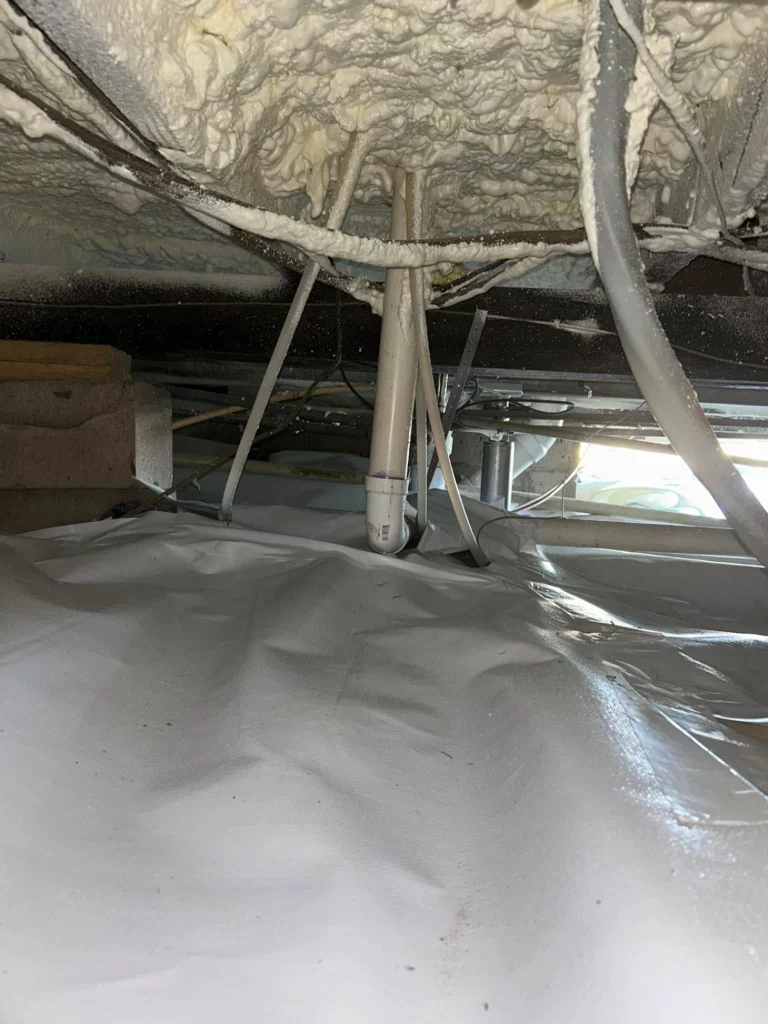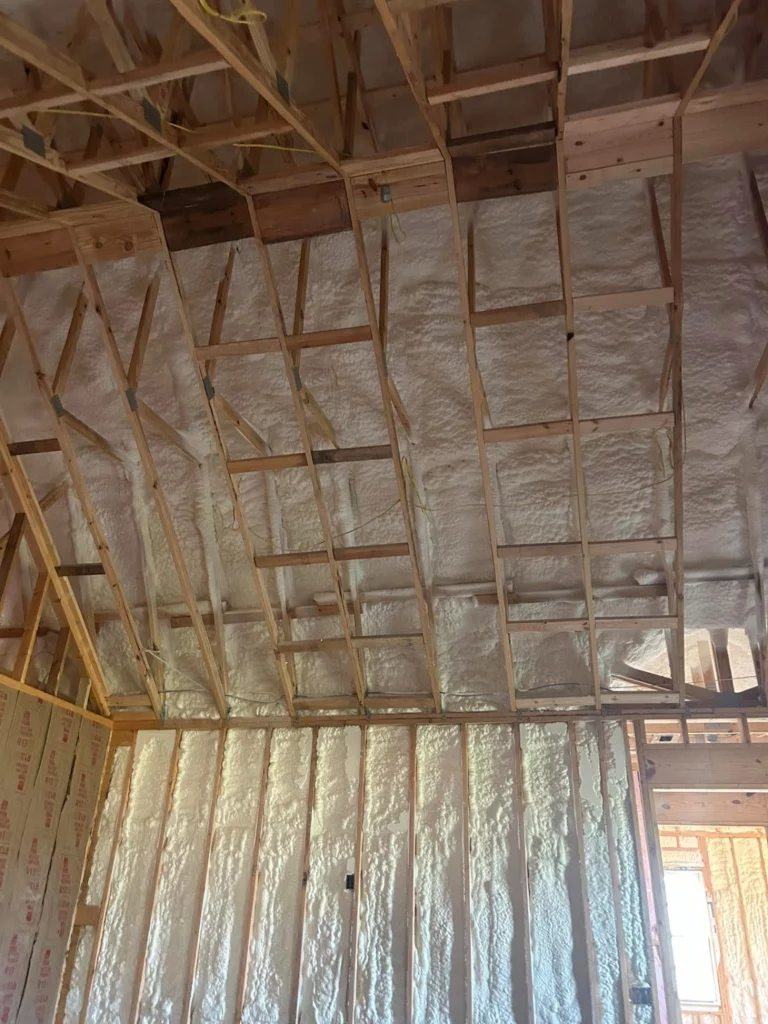Moisture problems in crawl spaces are more common in Georgia than many homeowners realize. At Premier Insulation GA, we’ve worked with families all over the state who’ve seen how damp, musty crawl spaces can affect their air quality, energy bills, and even structural safety.
If you’re researching ways to control moisture under your home, you’ve likely come across two options: vapor barriers and crawl space encapsulation. While they’re both designed to deal with the same issue, they do it in very different ways.
Let’s break it all down in plain English—so you can choose the right fix for your home and avoid bigger problems down the road.
What’s the Real Difference Between Vapor Barriers and Encapsulation?
Vapor Barriers: A Basic Starting Point
A vapor barrier is a sheet of plastic that gets laid down on the floor of your crawl space. The goal is simple: block moisture from coming up through the soil. It’s a quick and affordable option that can help in homes that don’t have serious water issues.
That said, vapor barriers don’t seal off the walls or stop humid air from getting in. They’re better than doing nothing, but they don’t offer full protection—especially in places like Georgia where humidity is high for most of the year.
Encapsulation: The Full Coverage Approach
Encapsulation is a more complete solution. Instead of just covering the ground, it seals the entire crawl space—floor, walls, vents, and sometimes even the ceiling. We use thick vapor liners, seal gaps, add insulation, and often install a dehumidifier to keep things dry long-term.
When it’s done right, encapsulation turns your crawl space into a clean, dry, controlled part of your home. That means better air quality, fewer pest problems, and improved energy efficiency.
Why Many Georgia Homeowners Choose Encapsulation
A lot of people start with a vapor barrier, thinking it’ll be enough. But when the musty smells don’t go away—or worse, when mold starts growing—they realize it’s time to take a bigger step.
Encapsulation is more of an investment upfront, but it often saves homeowners money in the long run by preventing expensive repairs. At Premier Insulation GA, we’ve seen firsthand how it can make a night-and-day difference in the comfort and safety of a home.
What Causes Crawl Space Moisture in the First Place?
Crawl space moisture isn’t always from a big leak. In fact, most of it comes from subtle sources like:
- Groundwater slowly evaporating into the air
- Outside humidity seeping in through vents
- Small plumbing leaks
- Poor grading or drainage outside the home
In Georgia, where the air is naturally damp for much of the year, this moisture builds up fast—especially if the crawl space isn’t sealed.
What Happens If You Ignore It?
Moisture problems don’t stay small. Over time, they can lead to:
- Mold and mildew growth
- Wood rot and structural issues
- High humidity inside your home
- Allergy flare-ups or breathing problems
- Uninvited pests like termites and rodents
That’s why we don’t just cover things up. We solve the problem at the source.
How We Handle Crawl Space Encapsulation at Premier Insulation GA
Every crawl space is a little different, and that’s how we treat them.
Step 1: Inspection & Diagnosis
We start with a detailed inspection. Our team looks for mold, signs of leaks, insulation damage, and other red flags. From there, we build a plan tailored to your home’s layout and moisture challenges.
Step 2: Using Materials Built for Georgia’s Climate
Georgia humidity can be brutal. That’s why we use:
- Reinforced vapor liners that won’t tear or shift
- Spray foam insulation designed for hot, moist air
- Heavy-duty sealants and tapes
- Dehumidifiers that are sized correctly for your space
Step 3: Solutions That Last
Quick fixes aren’t our thing. When we encapsulate a crawl space, we do it to last for decades—saving you from patchwork repairs and giving you real peace of mind.
When Is a Vapor Barrier Actually Enough?
Sometimes, a full encapsulation isn’t necessary. If your crawl space stays dry year-round and there’s no sign of mold, a properly installed vapor barrier might be all you need.
We’ll never push you toward a bigger job unless we’re confident it’s the right move. If a vapor barrier can do the job, we’ll tell you.
Signs You Might Need More Than a Vapor Barrier
- Your home smells musty, especially after it rains
- You’ve seen mold on joists or floor insulation
- The crawl space feels damp, even when it hasn’t rained
- Your energy bills are unusually high
In those cases, a basic barrier just won’t cut it—and encapsulation is the smarter choice.
More Than Just Moisture Control: The Other Benefits of Encapsulation
Encapsulation does a lot more than keep things dry. Some of the most noticeable benefits happen inside your home.
Lower Energy Bills
When your crawl space is sealed and insulated, your HVAC system doesn’t have to work as hard. That means better temperature control—and lower monthly costs.
Cleaner, Healthier Indoor Air
A lot of people don’t realize this, but up to half the air in your home comes from the crawl space. So if that space is full of mold, moisture, or musty smells, you’re breathing it in. Encapsulation keeps that air clean.
Let’s Fix Your Crawl Space for Good
Whether your crawl space just needs a vapor barrier or it’s time for a full encapsulation, we’re here to help. At Premier Insulation GA, we focus on honest advice, quality work, and results that last.
Call us today at (229) 554-3939 for a free crawl space inspection. We’ll walk you through your options and help you make the right decision for your home.
Voice Search Optimized FAQs
How do I know if my crawl space needs encapsulation?
If your home smells musty, your floors feel damp, or you see signs of mold, your crawl space may need full encapsulation.
Is crawl space encapsulation worth it in Georgia?
Yes—especially with our humidity levels. It helps protect your home from mold, lowers energy bills, and improves air quality.
Can I install a vapor barrier myself?
You can try, but most DIY jobs miss key steps like sealing edges or covering the walls. This limits the barrier’s effectiveness.
How long does crawl space encapsulation last?
With proper materials and installation, encapsulation can last over 20 years without major issues.
Does crawl space work help with indoor allergies?
Absolutely. By sealing out moisture and mold, encapsulation helps reduce airborne irritants that trigger allergies.





